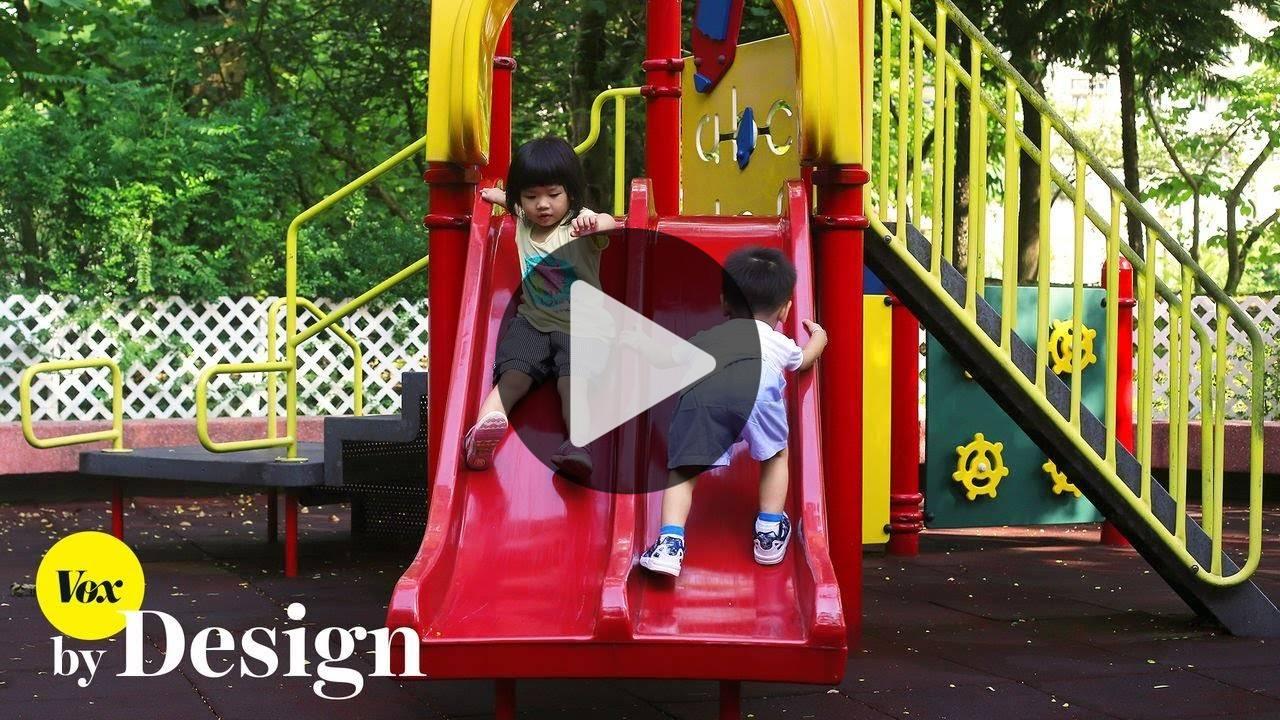This video is presented by Wix, sign up at https://www.wix.com/go/vox
Subscribe to our channel! http://goo.gl/0bsAjO
The stereotypical modern playground — with its bright colors and rubberized flooring — is designed to be clean, safe, and lawsuit-proof. But that isn’t necessarily the best design for kids.
US playground designers spent decades figuring out how to minimize risk: reducing heights, softening surfaces, and limiting loose parts. But now, some are experimenting with creating risk. A growing body of research has found that risky outdoor play is a key part of children’s health, promoting social interactions, creativity, problem-solving, and resilience.
Some communities are even experimenting with “adventure playgrounds,” a format with origins in World War II Denmark, where bomb sites became impromptu playgrounds. Filled with props like nails, hammers, saws, paint, tires, and wood planks, these spaces look more like junkyards than play spaces — and parents are often kept outside of the playground while children are chaperoned by staff. Now, that question of keeping children safe versus keeping children engaged is at the heart of a big debate in playground design.
Vox.com is a news website that helps you cut through the noise and understand what’s really driving the events in the headlines. Check out http://www.vox.com.
Watch our full video catalog: http://goo.gl/IZONyE
Follow Vox on Facebook: http://goo.gl/U2g06o
Or Twitter: http://goo.gl/XFrZ5H 원문보기
Uploaded By @Vlogger


